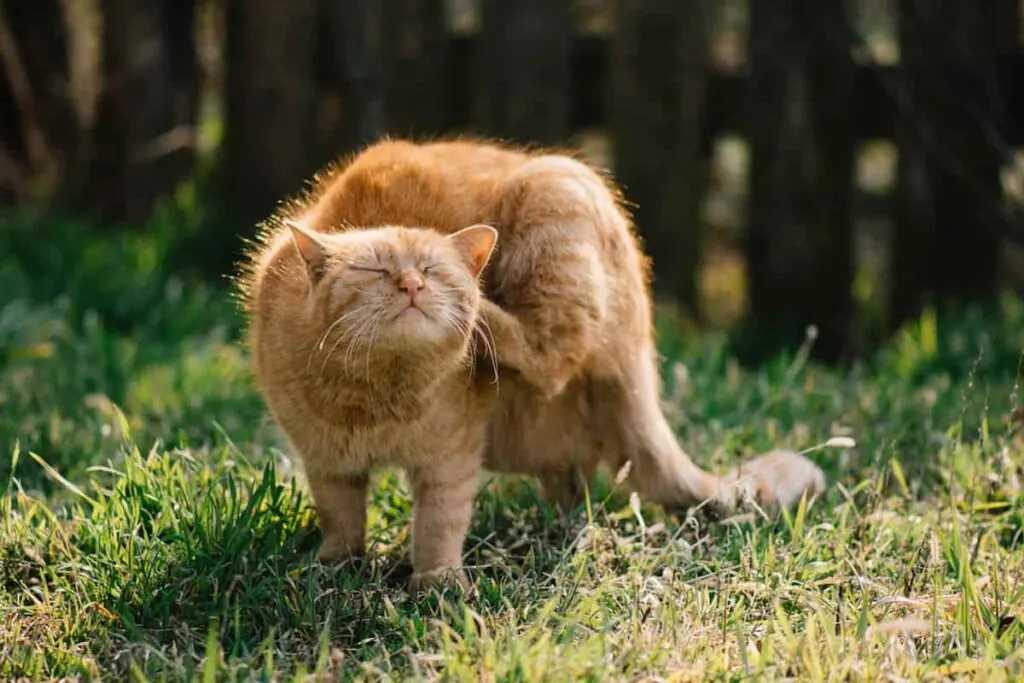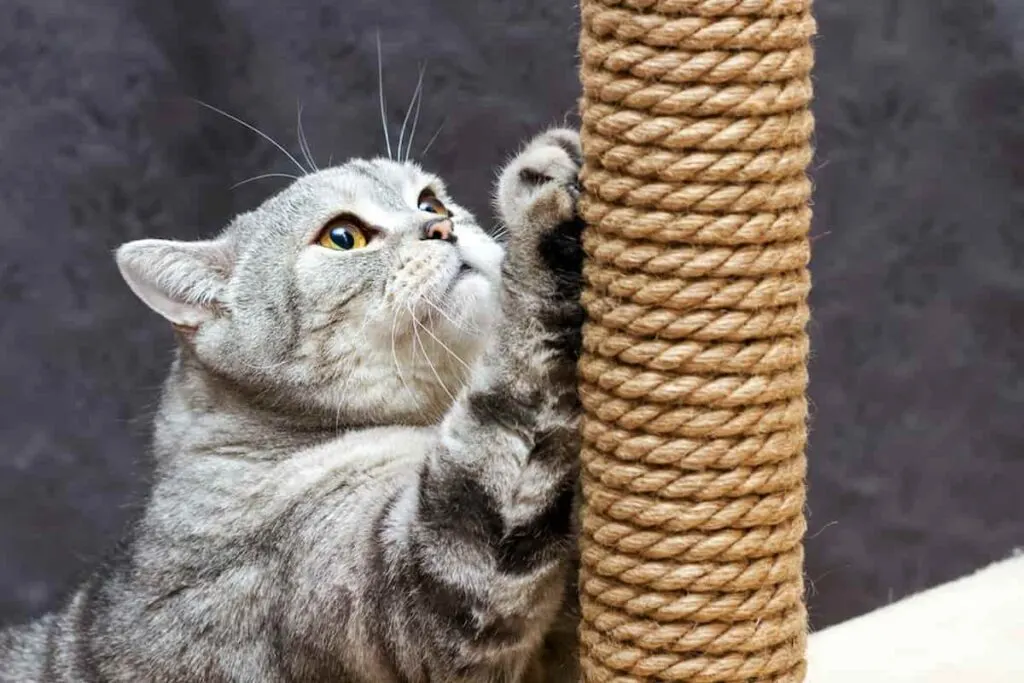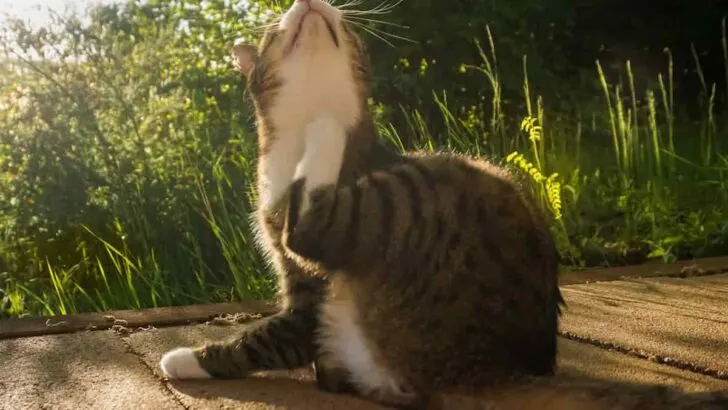Cats are known for their sharp claws, which they use for various activities such as climbing, hunting, and self-defense. However, have you ever wondered if cats can accidentally scratch themselves with their nails? It’s a valid question that many cat owners have asked themselves, mainly if they have observed their cats scratching themselves vigorously.
While cats are generally agile and coordinated animals, accidents can happen, and they can scratch themselves unintentionally. For instance, a cat may scratch itself while grooming, stretching, or playing. Additionally, cats with long nails are more prone to accidental scratches, as their nails can get caught in their fur, carpet, or furniture.
Accidental scratches are not a major cause for concern, as they typically heal within a few days. However, it’s important to keep an eye on the scratch and ensure it doesn’t get infected. Sometimes, a cat may scratch itself so deeply that it requires medical attention.

How Cats Scratch Themselves
Scratching is a natural behavior for cats, and it serves several purposes. One of the primary reasons cats scratch themselves is to remove the outer layer of their claws, which helps keep them sharp and healthy.
Cats also scratch themselves to mark their territory. When a cat scratches a surface, they leave behind visual and scent markers that other cats can detect. This is why you may notice your cat scratching near doorways or windows, as these are common entry points for other cats.
When cats scratch themselves, they typically use their hind legs to reach the areas they want to scratch. They may scratch their face, ears, neck, or other body parts. Cats have retractable claws, which means that their claws are only exposed when they need to be. This helps prevent accidental scratches when they are walking or jumping.
It is possible for cats to accidentally scratch themselves with their own claws, especially if their claws are long or if they are scratching vigorously. However, this is not a common occurrence, and most cats are able to scratch themselves without causing any harm.

Common Causes of Accidental Scratches
While cats are generally graceful and agile creatures, they can sometimes misjudge their movements or become startled, leading to unintentional scratches. Here are some common causes of accidental scratches:
- Playtime: Cats love to play, and sometimes their playful antics can result in scratches, especially if they use their claws during playtime.
- Grooming: Cats are known for their self-grooming habits, but sometimes they may accidentally scratch themselves while grooming hard-to-reach areas.
- Startling: Cats can be easily startled, and when they are, they may quickly jump or move, resulting in an unintentional scratch.
- Medical Conditions: Certain medical conditions, such as arthritis or vision problems, can cause cats to accidentally scratch themselves while trying to groom or move around.
It’s important to note that while accidental scratches may be common, it’s still important to take proper precautions to prevent them. This includes trimming your cat’s nails, providing plenty of toys and scratching posts for playtime, and being mindful of your cat’s movements and reactions.
Preventing Accidental Scratches
While it’s important to understand that cats don’t mean to hurt themselves, there are steps we can take to prevent accidental scratches from happening.
Firstly, it’s important to keep your cat’s nails trimmed. Not only does this reduce the likelihood of scratches, but it also helps keep your cat’s nails healthy. You can trim your cat’s nails or take them to a groomer or veterinarian to do them professionally.

You can also provide your cat with scratching posts and other appropriate surfaces to scratch on. This helps prevent accidental scratches, encourages healthy scratching behavior, and helps keep your cat’s nails in good condition.
It’s important to handle your cat gently and with care. Avoid grabbing or restraining them too tightly, as this can cause them to become anxious and more likely to scratch. Instead, approach your cat calmly and give them plenty of space to move around and explore.
These simple tips can help prevent accidental scratches and create a safer, happier environment for you and your cat.
What to Do If Your Cat Accidentally Scratches Themselves
As a pet parent, seeing your cat accidentally scratch itself can be heartbreaking. While minor scratches can heal on their own, more severe injuries may require medical attention. Here are some steps you can take if your cat accidentally scratches itself:
- Assess the severity of the scratch: If the scratch is minor, it may heal on its own. However, if the scratch is deep, bleeding heavily, or shows signs of infection, seek medical attention immediately.
- Clean the wound: Use a cloth or gauze to gently clean the wound with warm water and mild soap. Avoid using hydrogen peroxide or alcohol, as they can further irritate the wound.
- Apply pressure: If the wound is bleeding heavily, apply gentle pressure with a clean cloth or gauze until the bleeding stops.
- Apply an antibiotic ointment: Once the wound is clean and dry, apply a small amount to the affected area to prevent infection.
- Monitor for signs of infection: Keep an eye on the wound for signs of infection, such as redness, swelling, or discharge. If you notice any of these symptoms, seek medical attention immediately.
Remember, prevention is always better than cure. To prevent accidental scratches, keep your cat’s nails trimmed and provide them with appropriate scratching surfaces. Additionally, supervise your cat during playtime to minimize the risk of accidental scratches.

My name is James, and welcome to FAQCats!
Along with our team of cat owners, expert pet enthusiasts, and pet professionals, we aim to write engaging helpful, engaging content about cats. At FAQCats we strive to provide content that’s accurate and fun to read. Our team writes about everything related to cats; even the most complex of topics. Through extensive research and caring for our own fur-pals, we’re able to provide something cat owners worldwide will love. Have a look around, and leave us feedback anytime!

